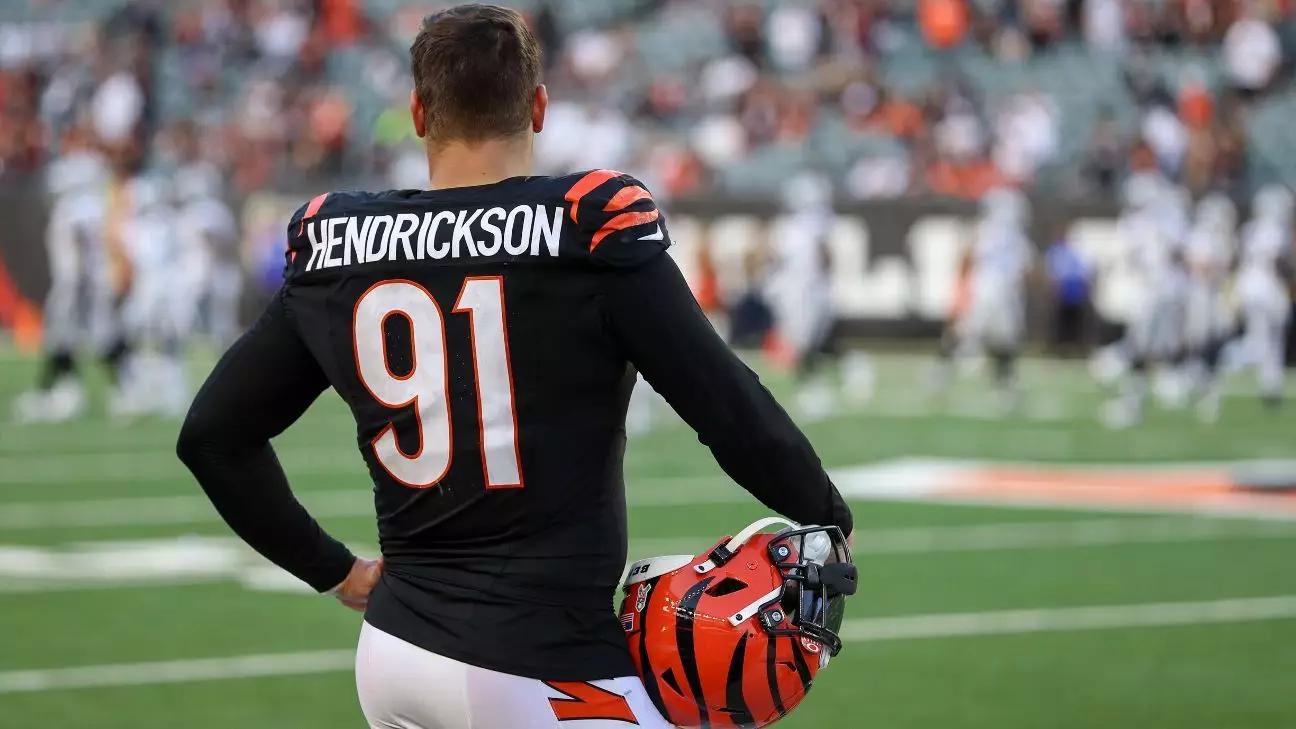In the evolving landscape of professional sports, players like Trey Hendrickson are asserting their value beyond mere performance metrics. Hendrickson’s unwavering stance on holding out indicates a shift in power dynamics—athletes are no longer passive commodities but active negotiators shaping their destinies. His refusal to practice and serve as leverage underscores a profound confidence that their worth is recognized and that it can be translated into better contractual terms. This stance challenges the traditional notion that team management holds all the power, emphasizing instead that players are increasingly willing to stand firm to secure their futures.
Security Over Recognition: A Game Changer in Contract Priorities
Hendrickson’s comments make an intriguing statement about what players truly value. While many athletes chase recognition through awards or highlight reel moments, Hendrickson emphasizes security—both financial and personal. His need for guaranteed money reflects a broader trend among NFL players seeking stability in a league where injury risk and uncertain careers prevail. His statement about informing his wife and planning life around his contract signals that players are viewing their athletic careers through a pragmatic lens, balancing passion with practical security. This prioritization challenges teams to rethink how they structure contracts, moving toward more guaranteed compensation to retain top talent.
The Implications for NFL Contract Negotiations
Hendrickson’s holdout also exposes a significant fault line in NFL contract negotiations—the issue of guaranteed money. While he and the Bengals agree on average salary and contract length, the persistent impasse on fully guaranteed deals reveals the league’s systemic reluctance to allocate large sums of security upfront. His case acts as a blueprint for future negotiations, spotlighting how players might leverage their performance and reputation to push for better guarantees. Ultimately, this standoff could catalyze a broader movement among NFL athletes demanding more comprehensive guarantees, reshaping contracts league-wide.
More Than a Player: A Symbol of the New NFL Era
Hendrickson’s decision is about more than himself; it embodies a larger cultural shift within the sports world. Athletes are increasingly vocal about their rights, not just as players but as individuals with tangible bargaining power. Their actions reflect a growing confidence that their demands will be heard, especially when they produce elite results—like Hendrickson’s 17.5 sacks last season. His stance encourages other players to reconsider what they are willing to accept in contracts, pushing teams to adopt a more player-centric approach that values durability and personal security just as much as on-field contribution.
Hendrickson’s stand is emblematic of a new era where NFL players are asserting their autonomy with boldness. His refusal to compromise on guaranteed money signals that athletes will no longer accept the traditional power imbalance. As negotiations unfold, his actions could set a precedent, prompting a reevaluation of how contracts are structured and how player worth is recognized. Ultimately, this standoff represents a critical moment—one where the league’s negotiation culture might shift towards a more equitable future for its stars.

